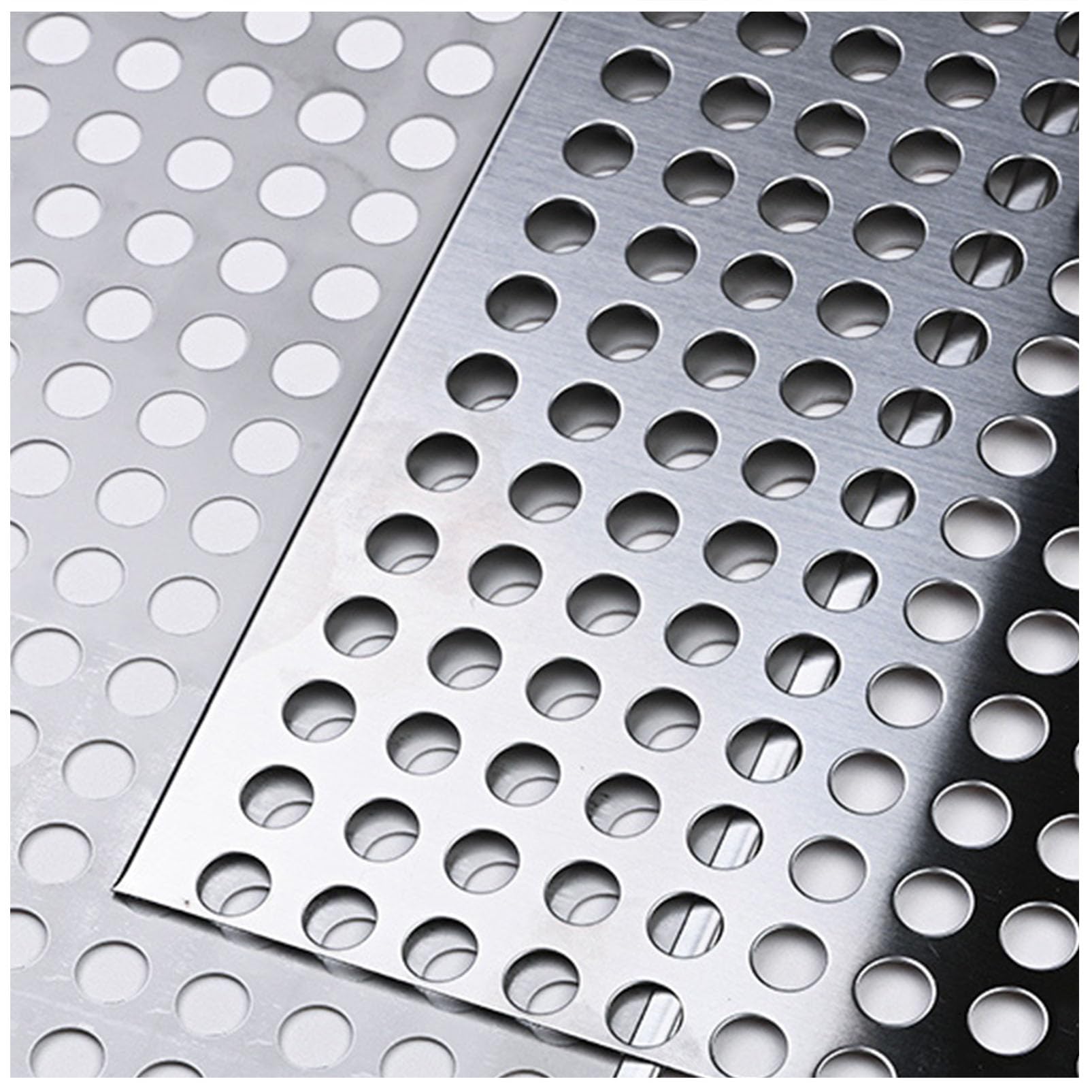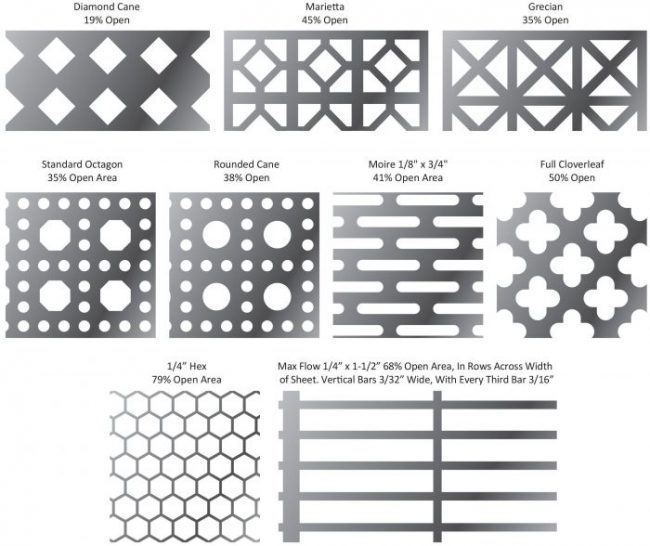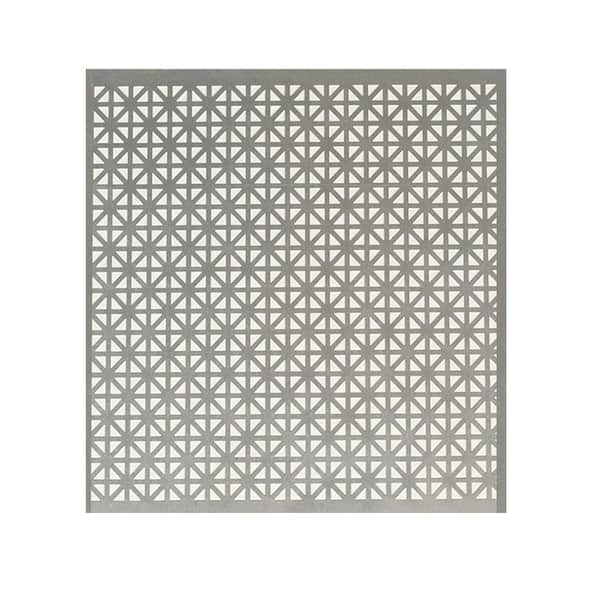Decorative metal grates serve more than just functional purposes; they can significantly enhance the aesthetics of your space. Whether you’re a homeowner looking to revamp your interior or an architect designing a commercial space, incorporating decorative metal grates can add a unique flair. In this article, we’ll dive deep into everything you need to know about decorative metal grates, including their benefits, design options, and maintenance tips.
What Are Decorative Metal Grates?
Decorative metal grates are designed not only for functionality—like air flow and drainage—but also for artistic appeal. Available in various materials, such as wrought iron, stainless steel, and aluminum, these grates can quickly transform an ordinary area into something extraordinary.
Types of Decorative Metal Grates
- Wrought Iron Grates: Known for their strength and classic style, wrought iron grates can be customized to fit various design aesthetics.
- Stainless Steel Grates: These grates are perfect for modern designs due to their sleek finish and resilience against rust.
- Aluminum Grates: Lightweight yet durable, aluminum grates are versatile for both indoor and outdoor use.
Benefits of Using Decorative Metal Grates
Incorporating decorative metal grates into your space has numerous advantages:
1. Aesthetic Appeal
One of the most significant benefits is their ability to enhance visual interest. With intricate designs and patterns, decorative metal grates can serve as a focal point.
2. Durability
Metal grates are typically more durable than their plastic or wooden counterparts, making them a long-lasting choice for various applications.

3. Easy Maintenance
Most metal grates require minimal maintenance, mainly needing occasional cleaning to keep them looking their best.
4. Versatility
From outdoor patios to indoor air vents, decorative metal grates can be used in various locations, offering flexibility in design.

Comparative Analysis of Decorative Metal Grate Materials
| Material | Durability | Maintenance | Aesthetic | Cost |
|---|---|---|---|---|
| Wrought Iron | High | Moderate | Classic | $$$ |
| Stainless Steel | Very High | Low | Modern | $$$$ |
| Aluminum | Moderate | Low | Versatile | $$ |
Personal Experiences with Decorative Metal Grates
In my recent home renovation project, I decided to install decorative metal grates in my living room and patio. I opted for stainless steel grates because I wanted a contemporary look that would withstand the test of time. The installation process was straightforward, and the difference in the room’s ambiance was astonishing.

Once the grates were in place, they became an instant conversation starter. Guests often commented on how unique and stylish they looked compared to traditional options. Additionally, they facilitated proper ventilation, which was a bonus!
How to Choose the Right Decorative Metal Grate
Choosing the right decorative metal grate involves several factors:

1. Consider Your Space
Analyze the area where you’ll install the grate. Is it an indoor or outdoor space? Will it be exposed to elements like rain or sunlight? This will help determine the material you should choose.
2. Think About Design
Your decor style should guide your choice. A more intricate design might suit a Victorian-style home, while clean lines are ideal for modern spaces.

3. Measure Accurately
Accurate measurements are crucial. Ensure the grate fits snugly in the designated area without gaps.
Installation Guide for Decorative Metal Grates
Installing decorative metal grates can be a DIY project if you’re handy. Here’s a quick guide:

Tools Needed:
- Measuring tape
- Level
- Screwdriver
- Drill
- Protective gloves
Steps to Install:
- Measure the area where the grate will be installed to ensure a proper fit.
- Clean the area thoroughly to remove any debris.
- Align the grate with the area and ensure it’s level.
- Secure the grate with screws, if necessary, depending on the model.
- Double-check that everything is stable and secure.

Maintenance Tips for Decorative Metal Grates
Although decorative metal grates are generally low-maintenance, here are some tips to keep them looking new:
1. Regular Cleaning
Dust and debris can accumulate. Use a soft brush or cloth to clean the surface.
2. Inspect for Rust
Especially if you have iron grates, regularly check for rust, particularly in outdoor settings. A rust inhibitor can help prolong their lifespan.
3. Repaint When Necessary
For wrought iron grates, you may need to repaint every few years to maintain appearance and prevent rust.
Common Uses for Decorative Metal Grates
Decorative metal grates are versatile and can be used in various applications:
1. Air Vents
Metal grates can provide ventilation while enhancing the design of a room.
2. Outdoor Patios
Add grates around fire pits or in outdoor kitchens to create a sophisticated look.
3. Drainage Covers
Use decorative grates for landscaping drainage to combine functionality with style.
Pros and Cons of Decorative Metal Grates
Pros
- Enhances aesthetic appeal
- Durable and long-lasting
- Low maintenance
- Variety of designs and materials
Cons
- Can be more expensive than other materials
- May require professional installation for larger projects
- Some materials may be prone to rusting
FAQs About Decorative Metal Grates
1. Are decorative metal grates suitable for outdoor use?
Yes, many decorative metal grates are designed for outdoor use, especially those made from stainless steel or aluminum, as they resist corrosion and rust.
2. How do I clean my decorative metal grate?
Regular maintenance includes dusting and spot cleaning with mild soap and water. Avoid harsh chemicals that can damage the finish.
3. Can decorative metal grates be customized?
Absolutely! Many manufacturers offer customization options, allowing you to choose specific designs, sizes, and finishes that fit your needs.
4. How can I prevent rust on my metal grates?
Using a protective coating specifically designed for the metal type can help prevent rust. Regular inspections and maintenance are also crucial.
5. What is the best material for indoor decorative grates?
Wrought iron and stainless steel are excellent choices for indoor decorative grates because they offer durability and aesthetic appeal.
Final Thoughts
In conclusion, decorative metal grates are a fantastic addition to enhance the functionality and style of your space. From choosing the right material to ensuring proper installation and maintenance, we’ve covered everything you need to know. So whether you’re looking to elevate your home or embark on a new architectural project, consider incorporating decorative metal grates for a stunning and practical solution!